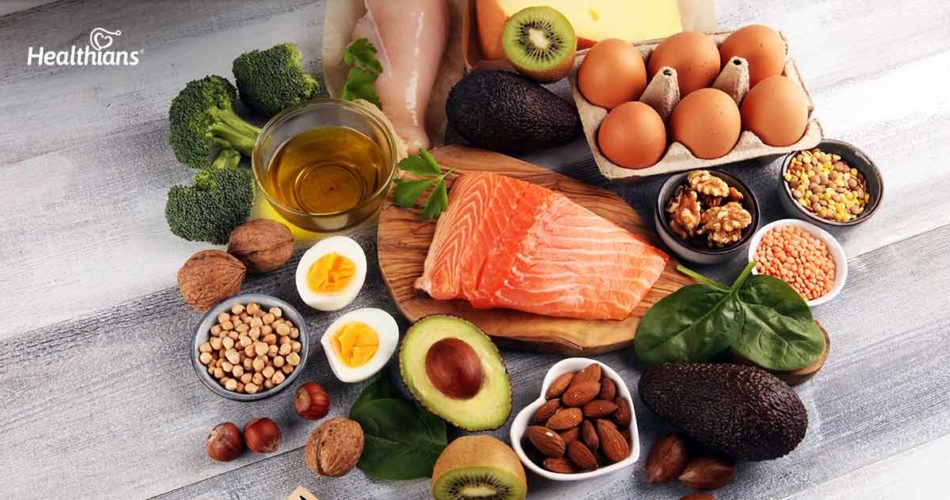Contributed by: Healthians Team
Introduction
Protein is an essential micronutrient for all of our cells. Proteins play a crucial role in all living cells since they are integral to all metabolic activity, enzyme synthesis and keeping your body functioning well.
A protein-rich diet on a daily basis keeps you healthy and energetic. Protein contributes to the repair of body cells and muscle development. It gives biological cells structure and support.
Diets high in protein are required for the immune system, mobility, hormone synthesis, and other biological processes.
This article highlights the greatest high-protein foods that you should include in your regular diet.
Eggs
Eggs, especially egg whites are the primary source of class one protein. They are quickly absorbed by the body.
With roughly 6 to 7 gms of protein in one egg, it is considered an extremely healthy food for breakfast, lunch, or dinner.
Eggs also include vitamins, minerals, and antioxidants that are good for our health.
Almonds
Almonds have a massive 6 gms of protein per ounce, as well as key minerals like magnesium, manganese, and vitamin E, which can help you live a healthier lifestyle. The antioxidant properties of almonds also aid in the repair of body cells.
Chicken
Chicken is one of the most popular foods that are very high in protein. Chicken breast, boneless and skinless, has long been regarded as one of the greatest protein sources.
It is high in B vitamins, zinc, and selenium, in addition to proteins. Most athletes and bodybuilders and athletes chicken breast in their diet because it does not have saturated fat.
Paneer
Paneer, often known as cottage cheese, is a popular indigenous dairy product of India. It’s high in vitamin b12, selenium, calcium, phosphorus, and other minerals.
Paneer is the most recommended source of protein for vegetarians.
To add to it, this powerhouse of protein is highly versatile and can be prepared as a main course with vegetables, served as a snack, combined with peas or beans, and included in salads.
Greek yoghurt
Another high-protein snack is Greek yoghurt, which is loaded with twice the quantity of protein compared to homemade curd.
If you are a vegetarian, Greek yoghurt should be a daily protein source. A typical 6-ounce piece contains 15 to 20 grammes or 2 to 3 ounces of lean meat.
This makes it particularly appealing to vegetarians, who may struggle to get enough of the nutrient. Yoghurt contains minerals such as calcium, vitamin B12, vitamin A, selenium, and zinc.
Milk
The humble glass of milk that we often take for granted is excellent to increase your protein intake.
This is because this dairy product contains a lot of protein that helps build bones and muscles.
Milk is also high in vitamins and minerals such as calcium, phosphorus, B vitamins, potassium, and vitamin D.
Nuts
Nuts such as groundnuts, almonds, and cashew are not only delicious, but they are also high in plant-based protein.
They include a high protein profile per ounce. They are especially beneficial to persons who consume few or no animal products.
Similarly, peanut butter and almond butter are high in proteins, potassium, and fibres.
Fish
This nutrient-dense kingfish has a high protein content. Fish is also high in vitamins and minerals.
Regular fish consumption reduces the risk of developing diseases such as type 2 diabetes and heart disease.
Legumes
Many people get most of their protein from legumes or pulses. Most pulses have a protein content of 21-25 per cent, which is almost double that of cereals.
Legumes do not contain all of the essential amino acids, but when combined with grains, they do.
Cereal and pulse proteins complement each other nicely to offer a high-protein meal.
Final thoughts
A healthy supply of protein-rich meals is an important component of a well-balanced diet. Of course, the proper dosage differs from person to person and is dependent on a number of factors.
Your age, whether you are pregnant, nursing, or developing, as well as your level of activity, all influence your protein intake.
An active adult should consume 60 to 80 gms of protein per day as a general guideline.
Moreover, you should also frequently opt for preventive health screening. It provides you with vital insights into your health, allowing you to take necessary measures to improve it.




